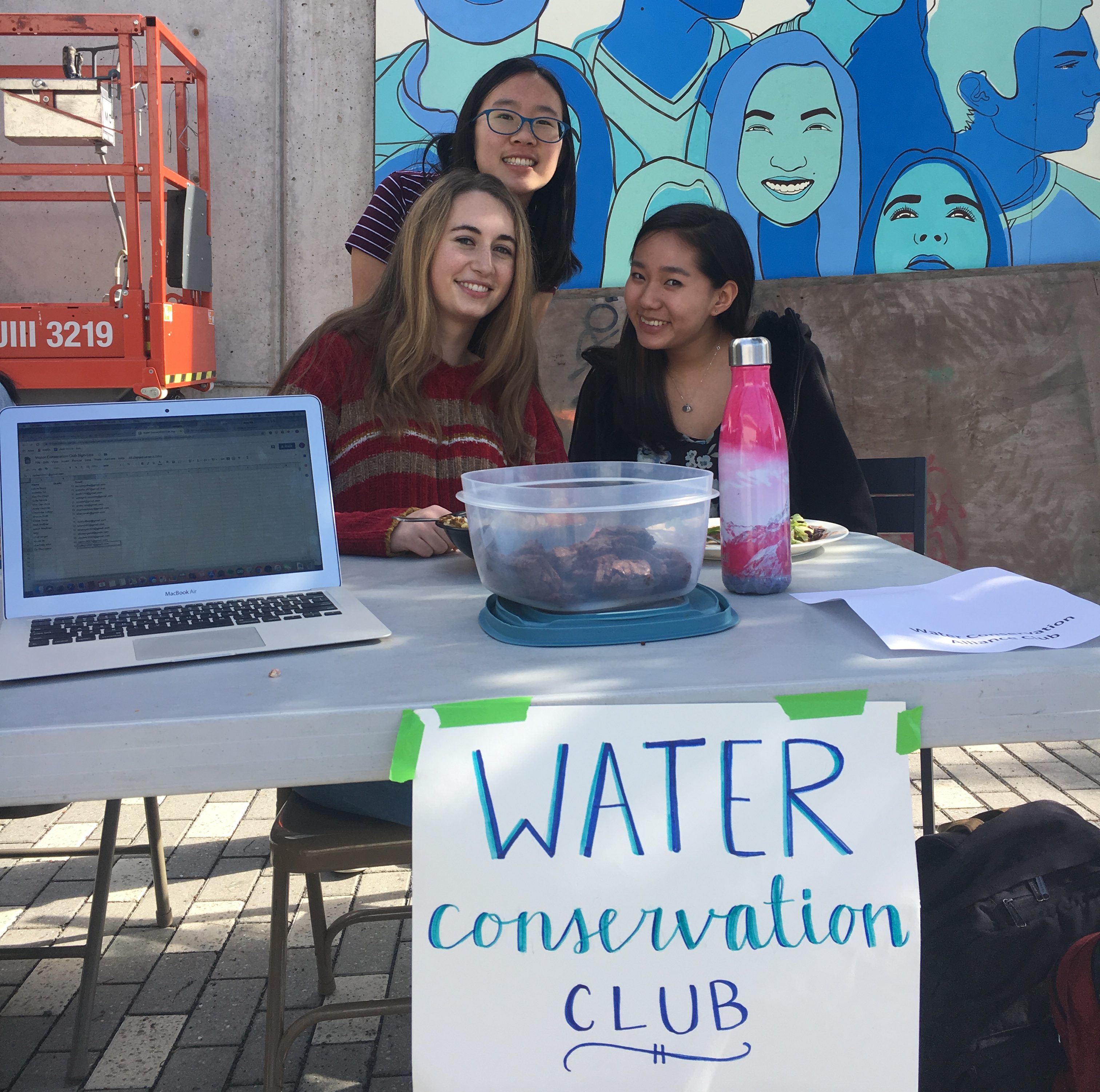This November, citing environmental concerns, Lick-Wilmerding’s student-led Water Conservation Club proposed that an additional meatless meal be added to the Ann-Maisel cafeteria lunch menu each week.
Water Conservation Club is a student-run organization led by Lick-Wilmerding seniors Sofia Morris ‘20, Isabella Yin ‘20, Laura Boyd ‘20, and Zoe Fu-Chen ‘20. The clubs focus is to educate the Lick-Wilmerding community regarding motives and tangible means to concern water. Last year, club leaders focused on educating the community about the environmental implications of individual choices. This year, however, club leaders decided it was also important for Water Conservation Club to emphasize bigger, more institutional changes regarding how the LWHS community consumes water. The club proposed an extra meatless hot lunch citing evidence that it would reduce the Caf’s net water consumption. This meatless entree would be in addition to pasta day the already vegetarian entree served every Monday and meat would still be available in the sandwich bar like normal. According to the organization People for the Ethical Treatment of Animals (PETA) it takes 600 gallons of water to produce a serving size beef. In contrast, according to the HuffPost and the organization EcoWatch, it takes 302 gallons of water to produce a serving size of tofu and 180 gallons to produce a serving size of beans. Boyd said, “if you just look at it numbers-wise if one person goes vegetarian versus if a whole school actively tries to not buy as much meat for one day, that impact is so much greater.”
The Caf already does pay close attention to its environmental impact. Director of Food Services Katheleen Fazio said that she focuses on ordering alternative cuts of meat which require less water and increase the chance that the entirety of an animal will be used. Though Fazio is excited to try out the extra meatless day, she acknowledged that Lick-Wilmerding seems to be a very protein-driven campus.
Water Conservation Club created and distributed a digital survey to the Lick-Wilmerding community about this proposed change. Three hundred and sixty-four community members filled out the survey. Of those who responded, sixty percent would not be opposed to the extra meatless day, twenty percent were indifferent, and twenty percent were opposed. Only seven percent of those who responded to the survey identified themselves as vegetarian.

Based on these results, the Caf planned and served two trial meatless days in November. The meatless entrees for those days were four-bean chili and aloo gobi chana masala, as those dishes were commonly proposed in the survey.
Student response to the survey and possible change has been mixed. As Yin pointed out, there is a strong, vocal minority of students who are strongly opposed to the change.
Those in opposition have spoken to their own experiences being left hungry on Monday pasta days, the only day the Caf’s current weekly vegetarian entree. Thomas Dean ‘20 believes that students should always have the option to get a meat entree. He feels the meatless meals are less satiating, and that they potentially put students in an “unfair” position of going to class hungry, especially if they do not have the financial means to purchase lunch off-campus. Marc Eidelhoch ‘20 agrees adding that the Caf could maybe allay these student’s concerns of hunger by increasing portion sizes and making meat or a plant-based protein the focus of every meal. Students can currently ask for bigger servings and get free seconds of any entree.
Wendy Sandoval ‘21 does not understand why this proposed change has become such an issue in the community. Many students voiced that this weekly change seems harmless to them citing the numerous examples they have of people thriving on diets with less or no meat.
Chris Chen ‘20 believes that part of, as the Water Conservation Club survey identified, the mostly-male-identifying pushback against this change is explained by the societal connections between men and meat. “Part of the social construct that creates the gender binary, part of creating the male image is having more meat consumption than women,” Chen said. He noted that in his experience, teenage boys often connect eating meat with achieving the athletic, bulked up physic that society tends to tells them they should have. Catherine Paik ‘20 agreed explaining that she has already seen her little brother absorbing this rhetoric and talking about eating meat to be bulky. Chen said, “I definitely see it when guys talk, “oh I need a second lunch” as if there is a hierarchy that forms.” Chen believes that male-identified students on campus feel slightly threatened by the proposed change which explains the backlash that has occurred.
This association between men and meat is a wider cultural issue that exists outside of the Lick-Wilmerding community. According to a Washington Post article citing Luke Zhu a professor who researches societal effects on decisions surrounding food, meat and other unhealthy foods are physiologically associated with masculinity while salad and other healthy food are physiologically associated feminity. This connection between the identity of male-identifying people and meat may explain why this issue has become such a debate on campus.
Looking forward Sandoval hopes that this conversation will spark better understandings from both sides and more informed choices. Agreeing Paik says this conversation was valuable and “hopes that it will create more awareness on how our everyday habits affect the world outside of Lick-Wilmerding.”







